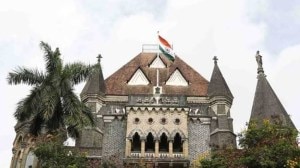Bihar needs a Bihari pill
The branding of Bihar as a horror destination has acquired global proportions. One by one, foreign correspondents come here and regale their...

The branding of Bihar as a horror destination has acquired global proportions. One by one, foreign correspondents come here and regale their readers back home with their adventures. That shouldn8217;t be terribly difficult since as tourists you don8217;t need to possess any qualification or do any homework or even get your facts right. So Bihar can be written about simply because it8217;s there. Bihar can also be written about because it has been stereotyped: there is a rich lexicon of cliches and a ready market for all.
Certainly, Bihar is beset by a whole roster of diseases. One remedy actually drew upon the ancient wisdom of the Panchatantra as well as the latest technique of organ harvesting. The state8217;s financial lifeline, Jharkhand, was carved out from Bihar because Bihar was considered sick beyond cure.
Sadly, some of the 8216;8216;absentee Biharis8217;8217; 8212; the emigre elite, among them officers of the All India and Central Services, professionals, teachers and students 8212; act as intellectual outriders of the state8217;s denigration campaign. Their tone and tenor while discussing Bihar are imbued with disillusion and cynicism. Their gentlemanly disdain for the vulgarity of society and politics in Bihar is often confused with a call to abandon Bihar altogether. Now, we are told, is the time for all sane people here to retire, to seek refuge elsewhere.
So overwhelmed do we get by the starkness of the situation that we tend to itemise the sins and follies of each other until they pile up so high it becomes difficult to see the way ahead. This induces a siege mentality. We become prisoners of our own mindset. A prisoner is never at home in his place of incarceration, no matter how long he must stay there. Within the four walls, the only creative activity he engages in is to dream of a life outside his place of enforced stay. But the problem is Bihar is not a penitentiary, prison or penal settlement. It is home to 80 million people and cannot be allowed to fall off the map.
The discourse on the development of Bihar, within Bihar, is deeply distorted; it assumes a partisan character. For, to bemoan the lack of development or to assert to the contrary is considered an act of political allegiance. Therefore, politics must be excluded from these efforts, it already occupies a disproportionately large public space.
In Herman Melville8217;s novel Moby Dick the three leading characters represent the trinity of conscience: knowing nothing, knowing but not caring, knowing and caring. The third type is useful.
Bihar brings up the bottom in terms of poverty despite several ongoing poverty alleviation programmes. Between the ambitious schemes conceived by people sitting in Patna and Delhi and actual delivery to beneficiaries is a vast desolate island of apathy, indifference, inefficiency and corruption.
Some civil servants perceive themselves merely as teller machines for their respective departments. That there are needy people at the end of the long pipeline is often lost sight of. But while the inefficient, insensitive and corrupt feel undeterred, the sensitive, creative and concerned feel hidebound by archaic financial rules, circulars and procedures. The sad part is that there are many of them. The investigation of some recent cases of defalcations has put the fear of a criminal investigation in their minds. Some of it may be justified given the tendency of some investigating agencies to treat 8216;8216;criminal conspiracy8217;8217; as a necessary add-on to all financial decisions that go awry.
All this, however, means that 8216;8216;escape8217;8217; from responsibility becomes the safest option for the well-meaning civil servant. The best part of the time of those who have been condemned to cool off after a central deputation is spent sulking or sucking up to those who can help them 8216;8216;escape8217;8217;.
This situation is true for almost every sphere of activity. So to the age-old paradox of Bihar8217;s poverty 8212; that it8217;s poverty amidst plenty 8212; we must add one more: the failure to deploy the extremely rich human resources and the crusading energy of many people in an optimal manner. Therefore, the portents are clear. The formal sector isn8217;t going to deliver in a hurry. And the problem of poverty alleviation cannot be delayed. This, in itself, can be treated as an opportunity for regeneration.
The resources of civil society, especially sincere NGOs, green movements and, of course, the media and other functional institutions, can be used to enlist and direct the energies of those frustrated by the system.
There is evidence this will work. Volunteer agencies and NGOs have done good work to empower dalits and spread literacy. In one dalit village, for example, people have created a perennial source of water entirely on their own. Efforts by solitary individuals to impart quality instruction to IIT aspirants have helped many overcome the handicap of good faculty in colleges.
What I8217;m trying to suggest is that there are people who understand the harsh reality of lives here. Their efforts can provide a counterpoint to official bureaucratic reality as well as criteria of judging success or failure.
Repeatedly shamed into feeling inferior, Biharis are scared of developing a sub-national identity. Ironically, you will not come across a single Bihari in Bihar 8212; he belongs to his caste 8212; and among the several million strong Bihari Diaspora. Many hide behind their temporary domiciliary, linguistic or non-resident identity for fear of being ridiculed. But there is another more galling variety of disparagement one sometimes comes across. 8216;8216;You don8217;t look/speak like a Bihari.8217;8217; For the endorsement of the general opinion that 8216;8216;if you aren8217;t stupid or uncouth you aren8217;t a Bihari8217;8217; you are exonerated from the stigma.
Because the formula of success has eluded us for so long we have stopped believing in ourselves. Conditioned to look up to the government for every thing, its perceived retreat tends to induce hysteria. Untapped potentialities of Bihar only need it to reinvent itself. And that invention is not as difficult as it sounds.
The writer is IG-CID Economic Offences Wing, Bihar Police
- 01
- 02
- 03
- 04
- 05































